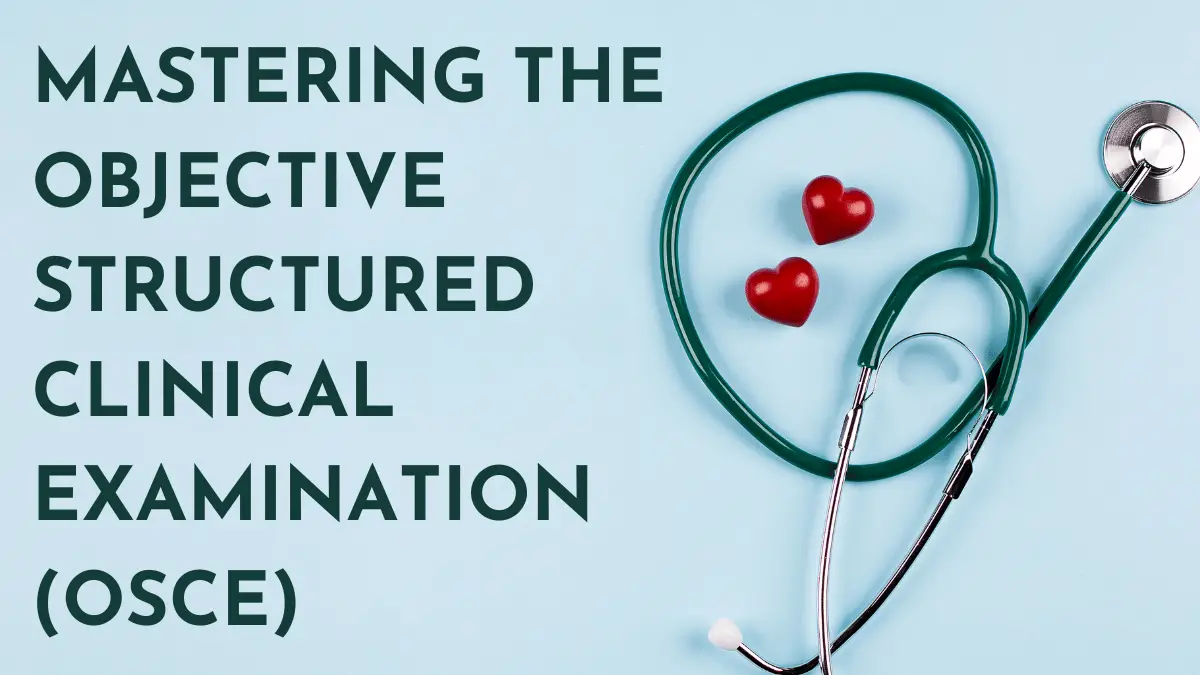Preparing for the Objective Structured Clinical Examination (OSCE) can be a daunting task for many medical students and professionals. However, with the right strategies and preparation techniques, success in the OSCE is achievable. In this comprehensive guide, we’ll delve into the essential aspects of preparing for the OSCE, providing you with the knowledge and confidence needed to excel in this crucial assessment.
Understanding the Objective Structured Clinical Examination (OSCE)
The OSCE is a standardized method of assessing clinical skills and competencies in various healthcare fields, including medicine, nursing, and allied health professions. Unlike traditional exams, the OSCE evaluates candidates through a series of stations where they encounter simulated patient encounters or clinical scenarios.
Table: Sample OSCE Preparation Schedule
| Week | Activities |
|---|---|
| Week 1 | Review OSCE format and assessment criteria |
| Week 2 | Practice history taking and physical examination |
| Week 3 | Participate in mock OSCE sessions |
| Week 4 | Focus on communication skills and professionalism |
| Week 5 | Revise clinical knowledge and procedural skills |
| Week 6 | Finalize preparations and address any lingering concerns |
Key Components of the OSCE
- Clinical Stations: These stations typically involve interacting with standardized patients (SPs) or clinical scenarios presented in a controlled environment. Candidates are assessed on their ability to perform tasks such as history taking, physical examination, communication skills, and clinical reasoning.
- Assessment Criteria: Each OSCE station is accompanied by a detailed marking rubric outlining specific criteria for assessment. These criteria often include aspects such as communication effectiveness, professionalism, clinical skills proficiency, and patient-centered care.
- Time Management: Time management is critical in the OSCE, as candidates are usually allotted a specific timeframe to complete each station. Effective time allocation ensures that candidates address all relevant components of the station while maximizing their performance within the given timeframe.
Effective Strategies for OSCE Preparation
- Familiarize Yourself with the Format: Understanding the structure and format of the OSCE is essential for effective preparation. Reviewing past OSCE stations, practice scenarios, and marking rubrics can provide valuable insight into what to expect on exam day.
- Develop Clinical Skills: Practice and refinement of clinical skills are fundamental to success in the OSCE. Regularly engage in hands-on clinical experiences, such as patient interactions, physical examinations, and procedural skills, to build confidence and competence.
- Utilize Mock OSCEs: Participating in mock OSCE sessions replicates the exam environment and allows for practical application of knowledge and skills. Seek feedback from peers, educators, or standardized patients to identify areas for improvement and refinement.
- Enhance Communication Skills: Effective communication is central to patient care and clinical practice. Practice active listening, empathy, and clear communication strategies to ensure effective interactions with standardized patients during the OSCE.
- Manage Test Anxiety: Addressing test anxiety is crucial for optimal performance in the OSCE. Employ relaxation techniques, mindfulness practices, and positive visualization to alleviate anxiety and enhance focus and concentration on exam day.
Conclusion
Preparing for the Objective Structured Clinical Examination (OSCE) requires a combination of knowledge, skills, and strategic preparation techniques. By understanding the exam format, developing clinical competencies, and employing effective preparation strategies, candidates can enhance their performance and achieve success in this important assessment. Remember to approach the OSCE with confidence, professionalism, and a patient-centered mindset, and you’ll be well on your way to mastering this challenging examination.

